Self-publishing a book can be a labor of love and for some of us, it’s what we live for. But why is it so many people now fancy themselves an author? And why is it that so many simple and frankly unreadable works are hitting the Amazon e-book charts? Should we all join in and get stupid?
Many books are intelligently written and beautifully constructed, but it is the pulp romance thriller that used to be a throwaway holiday read that catches the “public”‘s attention. Young Adult fiction, mostly about reckless sixteen year-olds fancying each other are leaving the digital shelves as quickly as they can be thrown together – read by, in my opinion inappropriately and rather creepily, by adults of all ages. Bad business advice books line the pages of every digital store. Some business self-help books turn out to be Christian in tone, an absolute obliteration of any sense of genre in my opinion – given that any bias toward religion in most workplaces would be severely frowned-upon.
So what is it about these books that dumb it down for the rest of us? Comments on Goodreads for example, about books I hold dear, written intelligently and with thought to the construct of a novel and inner world, are doomed to the trash by inexperienced readers on Goodreads declaring them “more boring than Dostoyevsky” or moaning that they “couldn’t get past the first chapter.”
Henry Baum, founder of Self Publishing Review says, “It’s not that only the writer has to be talented – the reader has to be talented too.”
And I agree with this, when I look at some of the terribly inane comments on my favorite books of all time, surely these world class authors fare well, you’d think:
Nog – ” I find it really frustrating to read a book with no plot, just a series of flashbacks”
Valis – “I gave it a good try… but it was exhausting”
Fight Club – ” The film is better than the book – It is indeed bad writing.”
The Portrait of a Lady – “Ugh. If I could describe this book in one word it would be “Laborious.” “
Requiem For A Dream – ” I’ll never bother to read anything by this writer again”
The Man Who Fell To Earth – “This was better than 1984 but never the less I still couldn’t get through it with it’s repetitive descriptions and awkward pacing”
Solaris – “Solaris wasn’t very rememberable (sic). I’m not even completely sure what it was about because not a lot of things happened.”
So now are we supposed to start writing for the Great Unwashed of the reading population? Do we have to dumb down our literary genius to meet ” commercial tides” and ” what the market wants?” Stop writing ” boring” books? Should the intelligent among us humans, often referred to by the rest as, ironically, ” well-read”, a euphemism for a somewhat resented lofty IQ, now find ourselves beholden to those not so “well-read”? It just seems to me they have no stamina.
In a panel this morning, the Book Industry Study Group announced these and other new stats from its Consumer Attitudes Toward E-Book Reading survey:
-E-books currently make up around 11 percent of the total book market. The percentage of print book consumers who say they download e-books more than doubled between October 2010 and January 2011– from 5 percent to almost 13 percent.
-Women make up 66 percent of e-book power buyers. In 2009, they didn’t even make up half of e-book customers (they were at 49 percent of the e-book market).
-Most e-books sold (58 percent) are fiction, with literary fiction, science fiction, and romance each comprising over 20 percent of all e-book purchases.
-”Power buyers” represent about 18 percent of the total people buying e-books today, but they buy 61 percent of all e-books purchased.
-The most influential factors leading to an e-book purchase are free samples and low prices.
In fact, Amazon cannot keep up with their typical e-book reader, desperately trying to find ways of censoring certain books as the tide makes haste, as this survey report from Paid Content concludes:
Today’s e-book power buyer–someone who buys an e-book at least once a week–is a 44-year-old woman who loves romance and is spending more on buying books now than in the past. She uses a dedicated e-reader like a Kindle instead of reading on her computer.
And it’s not just that. To find our market, we have to trawl through the slush to deliver ours untainted, blazing our books with the right ” sexy cover” and “marketable blurb”. In his blog post on the perils of self-promotion, a section entitled ” Shaking Your Can-Cans In The Whore’s Parade”, Chuck Wendig talks slutting it up for sales.
We’re fucked for good promotion. Just fucked. Twitter has turned into a near-ceaseless whore’s parade of authors showing a
littlea lot of tit and advertising their self-published books over and over again. And I say that as an offender dancing in that very parade. I try to do right with it — try to be funny and engaging and equal out my self-promo whore-tweets with just as many non-whore tweets to water down the acrid bite of my whorishness, but just the same, it’s hard. And here’s the rub: it totally fucking works. If I advertise one of my books directly, you know what happens? I get sales. The more promo I do, the more sales I get.Which means, being a trashy sloppy self-promo slut-bot is rewarding.
So are we to drop our pants and ride the wave of idiocracy? Sell out for the sake of the stink of money?
How’s this? None of us do.
Instead, we promise to write quality, well-formatted and well-presented books that engage and challenge a reader in the same way we pre-internet over-40s were challenged (if not infuriated) by Dickens, Chaucer and Shakespeare, depressed by Kundera, Selby Jnr and Nabokov, and enchanted by Bronte, Fitzgerald and Eco.
Don’t let good books die on your watch.
I shall leave you with some Alan Moore.
Magic in its earliest form is often referred to as “the art”. I believe this is completely literal. I believe that magic is art and that art, whether it be writing, music, sculpture, or any other form is literally magic. Art is, like magic, the science of manipulating symbols, words, or images, to achieve changes in consciousness. The very language about magic seems to be talking as much about writing or art as it is about supernatural events. A grimoir for example, the book of spells is simply a fancy way of saying grammar. Indeed, to cast a spell, is simply to spell, to manipulate words, to change people’s consciousness. And I believe that this is why an artist or writer is the closest thing in the contemporary world that you are likely to see to a Shaman…Writers and people who had command of words were respected and feared as people who manipulated magic. In latter times I think that artists and writers have allowed themselves to be sold down the river. They have accepted the prevailing belief that art and writing are merely forms of entertainment. They’re not seen as transformative forces that can change a human being; that can change a society. They are seen as simple entertainment; things with which we can fill 20 minutes, half an hour, while we’re waiting to die. It’s not the job of the artist to give the audience what the audience wants. If the audience knew what they needed, then they wouldn’t be the audience. They would be the artists. It is the job of artists to give the audience what they need.
I start the revolution against idiot writing here. Who’s with me?
Get an Editorial Review | Get Amazon Sales & Reviews | Get Edited | Get Beta Readers | Enter the SPR Book Awards | Other Marketing Services


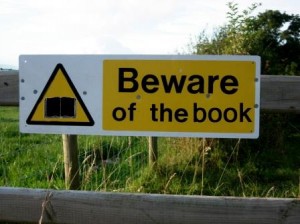












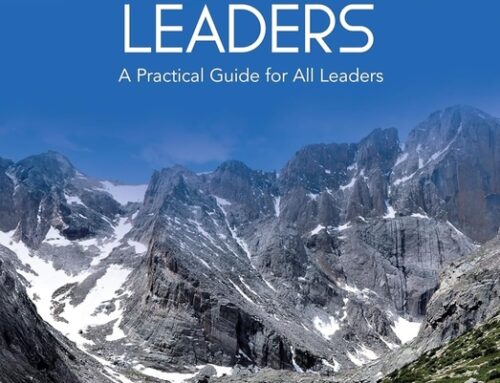
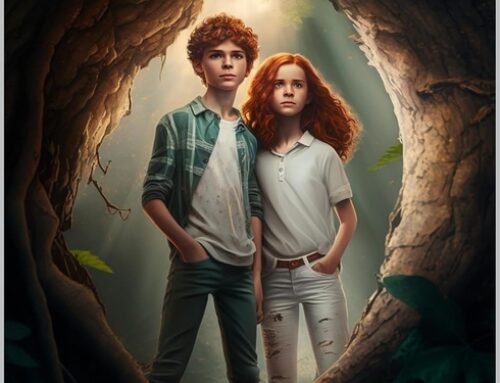

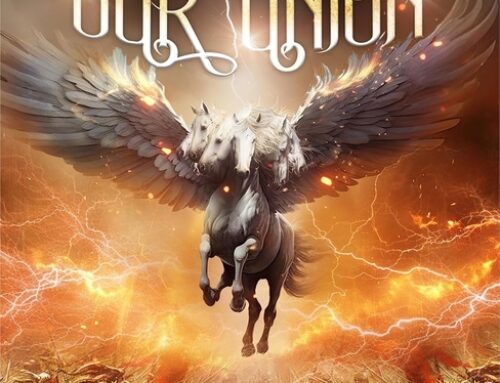
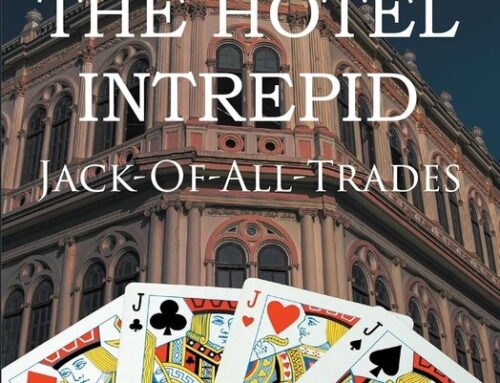


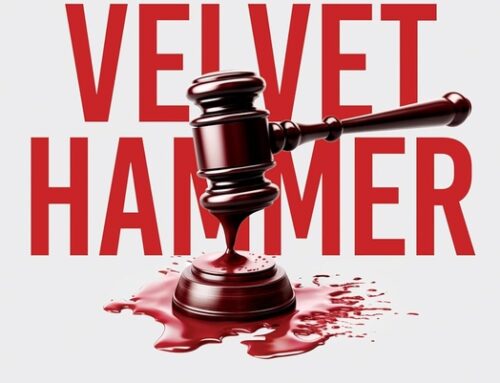
Preaching to the choir Catherine, preaching to the choir. The thing that drives me batty is the obsession with genres. Genres are not bad and they’ve been around for a while—the thriller, the romance, crime fiction, science fiction—but when I went into a bookshop growing up the bulk of the bookcases were labelled ‘General Fiction’. Ask anyone these days what they write who’s going to say, “Just fiction”? When I sat down to write what turned out to be my first novel I never gave a second thought to what kind of book I was writing or who might buy it. I had a story to tell and I told it in the manner that seemed most appropriate to that story. Only once I got round to marketing the damn thing did I have to look at it in a fresh light only to realise that it didn’t fit neatly into any existing genre or sub-genre. It was its own thing. I’m not saying that no one should write genre fiction any more—there’s definitely a market—but where are all the writers like me who have to get their stuff out onto the page for them and them alone?
My third novel was basically a pastiche of an early Beckett novella. I’ll tell you trying to get people to review that was not easy. I even approached a few “real” novelists whose work I’d reviewed hoping that they might return the favour and they begged off, I suspect because the work was self-published. The book never got a single bad review. Even the one girl who didn’t much care for it—as it happens a Goodreads reviewer—gave it four stars because she could see it was worthy and the fault lay with her. But I sold even less that Beckett’s Krapp who at least managed “[s]eventeen copies … of which eleven at trade price to free circulating libraries beyond the seas. Getting known.” One can only imagine how well Beckett would do if he’d been alive and trying to get started nowadays.
I look at the comments you listed and despair. Although, to be fair, Valis is exhausting.
I read the advice given to authors about how to promote themselves and I’ve tried—God, have I tried—to apply it but they’re really not talking to someone like me. The first bit of advice is usually, “Find people who are writing in your genre and make friends with them.” Okay, so that counts for about a dozen of my friends most of whom get free copies anyway. Now what? Oh, and I tried giving them away too. My first three novels were free on Smashwords for the last month and 400 books were downloaded and will sit on people’s hard drives until they run out of space of the things crash.
I’ve said this before but it really is the best of times and the worst of times to be a writer. So easy to get in print. So hard to get read.
Agree with both of you.
Everyone with an Amazon account is an expert now – apparently. I’m honestly afraid of promoting my book for free on any of the broader promotional channels – the ones people rave about – for fear of it landing on the Kindle of a typical beach or tube reader. Promoting your book is a nightmare if it is challenging to read or difficult to classify. Too many eBook readers hold the view that the book has to do all the work. Not so, it just has to reward the reader for putting the effort in. That’s often the best type of reader experience.
This. This. This. I don’t know how the art world deals with the division between art and people painting crying clowns and selling them at the starving artist’s sale at the airport convention center this weekend only, but it’s the same problem. I think this is the point in the art world where a group of people write a manifesto, but my beret and black turtleneck are in the shop, so someone else is going to have to take a stab at it.
If ebook sales weren’t 90% of my sales, I’d consider going paper-only at this point. Tired of getting experimental fiction one-starred by soccer moms who think the plot is jumbled. Ugh.
I must disagree with the tone of this piece, if not the thesis of it.
If I write a book, and it doesn’t sell, that means no one was interested in it. It doesn’t mean anything else. It doesn’t mean everyone is a moron and I am a genius. It doesn’t mean I am a failure, either. It just means people didn’t like it. People are allowed to not like things. Finding Dostoyevsky boring is not a crime, nor is it a judgement on anyone’s intellect: it’s finding Dostoyevsky boring. The Brothers Karamazov did not descend on a cloud from on high: it was created by a human. Other humans can do whatever they want with it.
The best thing about self-publishing is that no one makes you do it. You can create whatever you want. That’s freedom. The other side of freedom is that no one else has to like it, and no one else has to refrain from sharing their opinion on things they like or don’t like.
If you want to self-publish to create your kind of art, then nothing in this world will stop you. If you want to self-publish to make money, you need to create something that someone aside from you feels something about.
The world is filled with people who do not think as you do. If you want to waste the energy to despise them for it, they are unlikely to notice.
That’s my opinion, anyway. Your mileage may vary.
I agree with every contention here! Serious authors who have been shunned by populist publishers have traditionally cried ‘I’ll write it my way regardless and my market will find me’. That’s fine if your name is Umberto Eco and you can be self-indulgently obscure, confident that your name alone will attract readers. The problem for the unknown author of quality fiction is, the reader is unlikely to find them for the reasons mentioned: reviews at Amazon, Goodreads, and the like will reflect merely the populist taste.
One solution is the emergence of independent sites that can read a novel intelligently and review it sensitively. These sites like Blog Medallion are only now emerging, and we need more of them.
Yes–it’s infuriating when someone with a pink teddy-bear avatar can diss (& lower the ratings of) a great book because it’s full of long words! But an artists’ movement won’t help. Nobody thinks THEIR book is crap! So, how to winnow? I’m hoping (though not hopeful) Kobo or some other Amazon alternative can create a different rating system. Kobo’s push to sell e-books through independent bookstores certainly offers more appealing options for the frustrated discerning…if we’re a big enough market segment to bother with.
After years of trying to learn how to write and eventually pulling it all together and self-publishing my first novel, I am confronted with this overwhelming sense of unease when it comes to marketing my novel. Now you tell me I’m a whore. Jesus, I never thought it would come to this. Joking aside, everything you say is true. I’ve been wrestling with this marketing dilemma for months now, unable to put into words what has been troubling me. So where do we go from here? Do we need to establish reputable businesses that can evaluate and review this flood of books so that authors can get credible reviews–in other words, to separate the wheat from the chaff?
Dumbest article ever. Puh-lease. As if self-publishing has suddenly introduced stupid books to the world and every traditionally published and popular book was brilliant?!
How do I know this is false?
Because I write for Harlequin. Yup. Stupid and popular, dumbed down as far as you can go. To tie it all to self-publishing is just baiting the crowd.
“Who’s with me?”
Me! Me! Me!
Glad this has spawned debate. Not sure if I wrote ” dumbest piece ever” – I think there are a few pieces out there that might take that crown. For me, I think if someone spends any amount of time on writing a book, which will be at least months if not years, a review stating ” Ugh” is not enough said; it’s clearly nowhere near enough said. Seems disrespectful and childish to comment on any book in this way, whether it’s a work of art or merely someone enjoying themselves. Surely we deserve a little more than “Ugh” from any reader.
@Andrew Patrick: “If I write a book, and it doesn’t sell, that means no one was interested in it.” If only it was that simple. That statement implies that the more interesting the book, the more it will sell. If you write a book and it doesn’t sell, then it might mean that no one was there to see it. If you write a book and it doesn’t sell, then it didn’t find its market. As we all know, some very boring books have succeeded because they did that one thing write.
While you’re right that no one has to like what anyone writes, the narcissism of some reviewers is absurd.
Another of the points made in the article is that everyone with an opinion feels a new-found sense of duty to share it with the greater world. As Christopher Hitchens said: “Everyone has a book inside of them and in many cases, that’s exactly where it should remain.” The same applies to opinions of books. Just as there are misguided and bad writers of books, there are misguided and bad reviewers of books. A 500 word review by a professional reviewer cross posted to Amazon (Hint: still waiting for SPR to come through for me on that) has as much statistical value as a one sentence summary posted anonymously by someone who admits they didn’t even read beyond the first 10 pages. They are basically playing out the same problem from the other side of do-it-yourself democratised media. They may criticise a self-published book but they similarly lack any credibility. Just because you have read a book, it does not mean that the book was meant for you, or that your opinion will serve any constructive end other than to pamper the reviewer’s own ego.
The dilemma as I see it, is that to avoid uninformed bad publicity from every lap top critic out there, you need to take their reader expectations into consideration; don’t take risks, don’t veer from convention, stick to what people are familiar with. In other words, don’t be independent.
@BlairEvans “The dilemma as I see it, is that to avoid uninformed bad publicity from every lap top critic out there, you need to take their reader expectations into consideration; don’t take risks, don’t veer from convention, stick to what people are familiar with. In other words, don’t be independent.”
I don’t think it’s impossible to take reader expectations into consideration and challenge them at the same time. In fact, I don’t see how you do one without the other.
I guess I just don’t see the dichotomy as all that valid. Not all “popular” work needs to be schlock; not all “challenging” work needs to be opaque. For that matter, I don’t see that criticism needs be bad publicity. At any rate, it’s a response, and that’s something.
I also don’t agree that a 500 word review carries the same weight as a fly-by dumping. People can tell when a review is worthless; that’s why they get voted up and down. Statistics only matter so far.